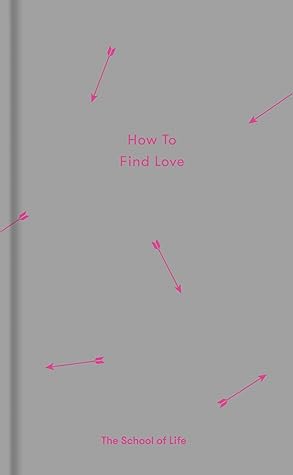More on this book
Community
Kindle Notes & Highlights
Our society encourages us not to probe our three Instincts (for Completion, Endorsement and Familiarity) too much. We are encouraged to ‘go with our feelings’ and to ‘trust our instincts’.
Love aims to be a safe arena in which two people can gently teach and learn how to grow into better versions of themselves. Teaching and learning does not symbolise an abandonment of love: it is the basis upon which we can develop into better lovers and, more broadly, better people.
We don’t only harm by being brutal with others; we can as easily – and perhaps more deeply – harm someone by seeming very nice to them, while wasting their years in a union to which we know all along we don’t feel committed.
Part of properly growing up is knowing the difference between seeming nice and being nice – the latter requiring one to do things to a lover that will for a time enrage and devastate them.
We have to be at peace with the prospect of many years of solitude in order to have any chance of forming a good relationship, or we’ll love no longer being single rather more than we love the partner who spared us being so.
Only when we make sure that being single can be potentially as secure, warm and fulfilling as being in a couple will we know that people are choosing to pair up for the right reasons.
In the meantime, we should strive to make ourselves as much at peace as we can be with the idea of being alone for a long time. Only then do we stand a chance of deciding to be with someone on the basis of their own merits.
‘Marry, and you will regret it; don’t marry, you will also regret it; marry or don’t marry, you will regret it either way. Laugh at the world’s foolishness, you will regret it; weep over it, you will regret that too; laugh at the world’s foolishness or weep over it, you will regret both. Believe a woman, you will regret it; believe her not, you will also regret it…. Hang yourself, you will regret it; do not hang yourself, and you will regret that too; hang yourself or don’t hang yourself, you’ll regret it either way; whether you hang yourself or do not hang yourself, you will regret both.
...more
In other words, whatever we choose will be a bit wrong, so we shouldn’t agonise too much about any one choice we make. The real skill is not always to strive to make better choices; it’s to know how to make our peace with our necessarily bad choices.
We should with cheer accept that we never had ideal options in the first place. This is not a curse on us: the same difficult truth has to be faced by everyone.


